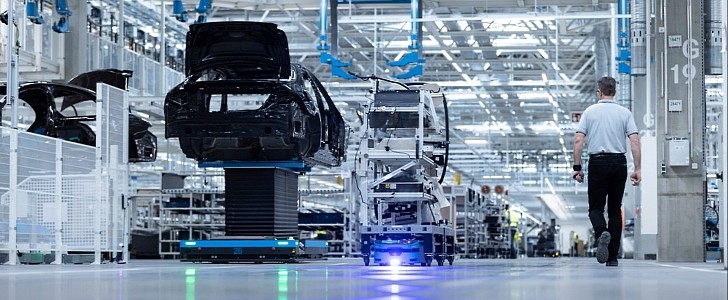One of the side effects of more people working remotely because we all know why is a major boom in the demand for electronics, with PCs, tablets, laptops, and smartphones recording massive growth throughout 2020 and the first quarter of 2021.
This in turn has generated a global chip shortage, as foundries across the world are struggling to fill their orders and align their production with the demand.
But despite all chip manufacturers working non-stop and keeping their production lines active 24/7, the lack of semiconductors has severely hit many industries, including the automotive market where many companies had to turn to temporary suspensions of their production.
Ford, Hyundai, Daimler, and several others decided to use short-term production halts at some of their factories, simply because they didn’t have enough chips to install on their cars.
And while the world is now recovering after the global health issue and we can finally see the light at the end of the tunnel, everybody expects this lack of chips to also come to an end.
But that’s not going to happen too soon, with Xiaomi Group President and Redmi General Manager Lu Weibing recently warning that foundries would still be unable to fill their orders until at least 2022. In other words, the lack of semiconductors will persist into 2022, with some signs of recovery in the first half of the next year.
“We see that the cycle of chip shortages will not be too short. This year, it will definitely not be alleviated. If you are optimistic next year, in the first half of the year,” he said.
Earlier this year, Xiaomi executive Wang Xiang warned that the huge demand for chips could eventually generate a higher cost that many manufacturers might eventually pass on to consumers.
The good news is that several tech companies have already announced their intention to start manufacturing chips for the automotive market. Both Intel and Samsung are currently working on chip-making production lines, while Huawei is expected to set up a dedicated joint venture specifically for EV semiconductor manufacturing with the help of a domestic partner.
But despite all chip manufacturers working non-stop and keeping their production lines active 24/7, the lack of semiconductors has severely hit many industries, including the automotive market where many companies had to turn to temporary suspensions of their production.
Ford, Hyundai, Daimler, and several others decided to use short-term production halts at some of their factories, simply because they didn’t have enough chips to install on their cars.
And while the world is now recovering after the global health issue and we can finally see the light at the end of the tunnel, everybody expects this lack of chips to also come to an end.
But that’s not going to happen too soon, with Xiaomi Group President and Redmi General Manager Lu Weibing recently warning that foundries would still be unable to fill their orders until at least 2022. In other words, the lack of semiconductors will persist into 2022, with some signs of recovery in the first half of the next year.
“We see that the cycle of chip shortages will not be too short. This year, it will definitely not be alleviated. If you are optimistic next year, in the first half of the year,” he said.
Earlier this year, Xiaomi executive Wang Xiang warned that the huge demand for chips could eventually generate a higher cost that many manufacturers might eventually pass on to consumers.
The good news is that several tech companies have already announced their intention to start manufacturing chips for the automotive market. Both Intel and Samsung are currently working on chip-making production lines, while Huawei is expected to set up a dedicated joint venture specifically for EV semiconductor manufacturing with the help of a domestic partner.

